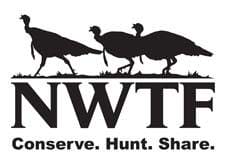

EDGEFIELD, S.C. -(Ammoland.com)- The National Wild Turkey Federation applauds Secretary of the Interior Ryan Zinke’s continual efforts to advance sportsmen’s priorities, particularly his latest secretarial order, which begins the push to end catastrophic wildfires.
Zinke directed all Department of the Interior bureaus, superintendents and land managers at all levels to adopt more aggressive practices to prevent and combat the spread of those catastrophic wildfires.
Zinke’s order also spells out how he expects those orders to be carried out, as he wants to see fuel reductions and pre-suppression techniques.
According to a release from Zinke’s office, 47,700 wildfires have burned 8 million acres across the country this year. Most of those fires have been in the states of California and Montana. Although high profile fires such as those in Yosemite have caught national headlines, millions of acres of forest and grassland have burned in recent months causing habitat destruction across many states.
“This Administration will take a serious turn from the past and will proactively work to prevent forest fires through aggressive and scientific fuels reduction management to save lives, homes, and wildlife habitat. It is well settled that the steady accumulation and thickening of vegetation in areas that have historically burned at frequent intervals exacerbates fuel conditions and often leads to larger and higher-intensity fires,” said Secretary Zinke. “These fires are more damaging, more costly, and threaten the safety and security of both the public and firefighters. In recent fire reviews, I have heard this described as ‘a new normal.’ It is unacceptable that we should be satisfied with the status quo. We must be innovative and where new authorities are needed, we will work with our colleagues in Congress to craft management solutions that will benefit our public lands for generations to come.”
The Secretary has directed those in charge of units that have burnable vegetation to address the threat of fire in all their activities and to reduce fuel loads.
“We have been a strong advocate for active forest management. As we have worked with researchers and forest managers, we have seen limited budgets go to address wildfire suppression, rather than management,” said Becky Humphries, NWTF CEO. “We applaud this step to enhance active forest management under this order.”
Zinke is not the only one calling for swift action as wildfires still rage out west.
U.S. Secretary of Agriculture Sonny Perdue also renewed his call for Congress to fix the way the agency’s fire suppression efforts are funded.
As Perdue sounded his call, a new report shows 2017 has been the most expensive year on record as fire suppression costs have exceeded $2 billion. And fire suppression spending by the Forest Service has gone from using 15 percent of their budget to 55 percent of their budget.
“Forest Service spending on fire suppression in recent years has gone from 15 percent of the budget to 55 percent – or maybe even more – which means we have to keep borrowing from funds that are intended for forest management,” Perdue said. “We end up having to hoard all of the money that is intended for fire prevention, because we’re afraid we’re going to need it to actually fight fires. It means we can’t do the prescribed burning, harvesting, or insect control to prevent leaving a fuel load in the forest for future fires to feed on. That’s wrong, and that’s no way to manage the Forest Service.”
Perdue said he would prefer that Congress treat major fires the same as other disasters and be covered by emergency funds so that prevention programs are not raided.
About the National Wild Turkey Federation:
When the National Wild Turkey Federation was founded in 1973, there were about 1.5 million wild turkeys in North America. After decades of work, that number hit an historic high of almost 7 million turkeys. To succeed, the NWTF stood behind science-based conservation and hunters’ rights. Thanks to the efforts of dedicated volunteers, professional staff and committed partners, the NWTF has facilitated the investment of $488 million in wildlife conservation and the preservation of North America’s hunting heritage. The NWTF has improved more than 17 million acres of wildlife habitat and introduce 100,000 people to the outdoors each year. The NWTF Save the Habitat. Save the Hunt. initiative is a charge that mobilizes science, fundraising and devoted volunteers to raise $1.2 billion to conserve and enhance more than 4 million acres of essential wildlife habitat, recruit at least 1.5 million hunters and open access to 500,000 acres for hunting.
For more information, visit their website.
